
Dahabshiil sued for 'aiding Al-Shabaab terrorists' US high Court
17-432-cv
Decided: December 01, 2017
Present: ROSEMARY S. POOLER, RICHARD C. WESLEY, PETER W. HALL, Circuit Judges. Appearing for Appellant: Joshua D. Arisohn, Bursor & Fisher, P.A., New York, N.Y. Appearing for Appellee: A. Katherine Toomey, Lewis BaachKaufmann Middlemiss PLLC (Elizabeth L. Marvin, Tara J. Plochocki, on the brief), Washington, D.C., for Dahabshil, Inc. and Dahab-Shil, Inc.; Daniel L. Brown, Sheppard, Mullin, Richter & Hampton LLP, New York, N.Y., for Dahabshiil Transfer Services LTD and Dahabshiil PVT.
ON CONSIDERATION WHEREOF, IT IS HEREBY ORDERED, ADJUDGED, AND DECREED that the order of said District Court be and it hereby is AFFIRMED.
Plaintiffs-Appellants Harbi Hussein, Ayanle Ali, Maryan Ali and Riyak Ali appeal the January 27, 2017 opinion and order of the United States District Court for the Southern District of New York (Caproni, J.) dismissing their first amended complaint with prejudice. Plaintiffs raised claims under the material support provisions of the Anti-Terrorism Act ("ATA”), codified at 18 U.S.C. §§ 2339A-2339C, and alleged that defendants conspired to provide support to the terrorist organization al-Shabaab, which murdered plaintiffs' relatives in Somalia in 2014. We assume the parties' familiarity with the underlying facts, procedural history, and specification of issues for review.
We review de novo a district court's dismissal of a complaint for failure to state a claim. Rothstein v. UBS AG, 708 F.3d 82, 90 (2d Cir. 2013). "To survive a motion to dismiss, a complaint must contain sufficient factual matter, accepted as true, to state a claim to relief that is plausible on its face.” Ashcroft v. Iqbal, 556 U.S. 662, 678 (2009) (internal quotation marks and citation omitted).
Each of the ATA material support provisions requires that a defendant act with a specified degree of scienter, ranging from "knowingly” to the arguably higher standard of "unlawfully and willfully.” 18 U.S.C. §§ 2339B, 2339C; see also Weiss v. Nat'l Westminster Bank PLC, 768 F.3d 202, 207-08 (2d Cir. 2014) (discussing mental state requirement for civil ATA claims brought pursuant to Section 2339B); United States v. George, 386 F.3d 383, 389 (2d Cir. 2004) ("Divining the meaning of ‘willfully’ ․ has long bedeviled American courts.”).
Here, plaintiffs failed to raise a plausible allegation that defendants performed any banking services in favor of al-Shabaab while acting with the requisite mental state. In their complaint, plaintiffs assert that four transfers originating in Minnesota were made by defendants on behalf of al-Shabaab. However, the complaint also indicates that all four transfers were sent by individuals unaffiliated with defendants, who deliberately concealed the nature of the transactions by sending the money under false names, or to individuals with no public association with al-Shabaab. The remaining allegations in the complaint are highly generalized and do not contain enough detail to "nudge[ ] their claims across the line from conceivable to plausible.” Bell Atlantic Corp. v. Twombly, 550 U.S. 544, 570 (2007). As a result, the complaint does not provide a plausible basis to infer that defendants, either individually or collectively, knew or were deliberately indifferent to the fact that their services were used to send funds to al-Shabaab on any specific occasion. Cf. Weiss, 768 F.3d at 208.
Plaintiffs argue that defendants must have known that they were providing financial services to al-Shabaab, because al-Shabaab members likely entered defendants' branch locations in Somalia and were recognized on sight by employees. This celebrity-based theory of knowledge is speculative at best. Even assuming that members of al-Shabaab physically entered defendants' branch locations—an assertion not contained in the complaint—it is pure conjecture to claim that defendants' employees would have instantly known the identity and affiliation of such individuals. Even high-level members of terrorist organizations may be unknown to the public at large, unknown to the specific employees on duty, known only by name, or appear different in person.
For many of these same reasons, we also affirm the district court's denial of leave to amend the complaint. We generally review such decisions for abuse of discretion. McCarthy v. Dun & Bradstreet Corp., 482 F.3d 184, 200 (2d Cir. 2007). However, we review de novo the district court's denial of leave to amend where "the denial was based on an interpretation of law, such as futility.” Panther Partners Inc. v. Ikanos Commc'ns, Inc., 681 F.3d 114, 119 (2d Cir. 2012). Plaintiffs did not specify below the details of how they would amend their complaint, but, on appeal, plaintiffs propose a host of additional allegations. These generally relate to the notoriety of the al-Shabaab affiliates that allegedly entered defendants' branch locations, and other instances where defendants allegedly assisted other terrorist networks, such as al-Qaeda. Even overlooking plaintiffs' failure to raise these allegations below, none of these proposed additions would cure the deficiencies in the complaint. As discussed, speculation that members of al-Shabaab would have been recognized by defendants' employees is an insufficient basis to infer scienter. And allegations pertaining to other terrorist organizations are no substitute for facts indicating the defendants knowingly rendered services to al-Shabaab, as required for plaintiffs to bring their claims under the ATA.
We have considered the remainder of plaintiffs' arguments and find them to be without merit. Accordingly, the order of the district court hereby is AFFIRMED. Each side to bear its own costs.
FOR THE COURT:
Catherine O'Hagan Wolfe, Clerk
https://caselaw.findlaw.com/us-2nd-circuit/1881473.html

 0
0 



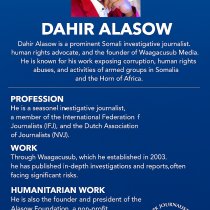
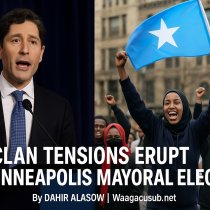




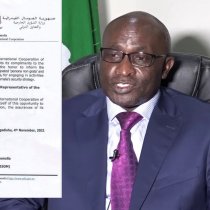

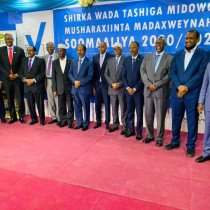




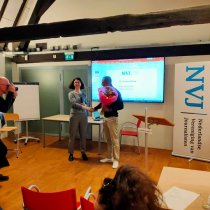

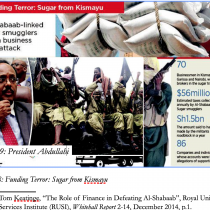




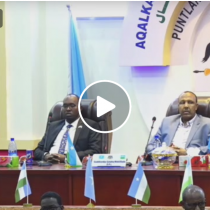








Dahabshiil sued for 'aiding Al-Shabaab terrorists' US high Court
HARBI HUSSEIN RIYAK ALI AYANLE ALI MARYAN ALI v. DAHABSHIIL TRANSFER SERVICES LTD DAHABSHIL INC DAHAB SHIL INC DAHABSHIIL PVT. United States Court of Appeals, Second Circuit. HARBI HUSSEIN, on behalf of himself and as a representative of the Estate